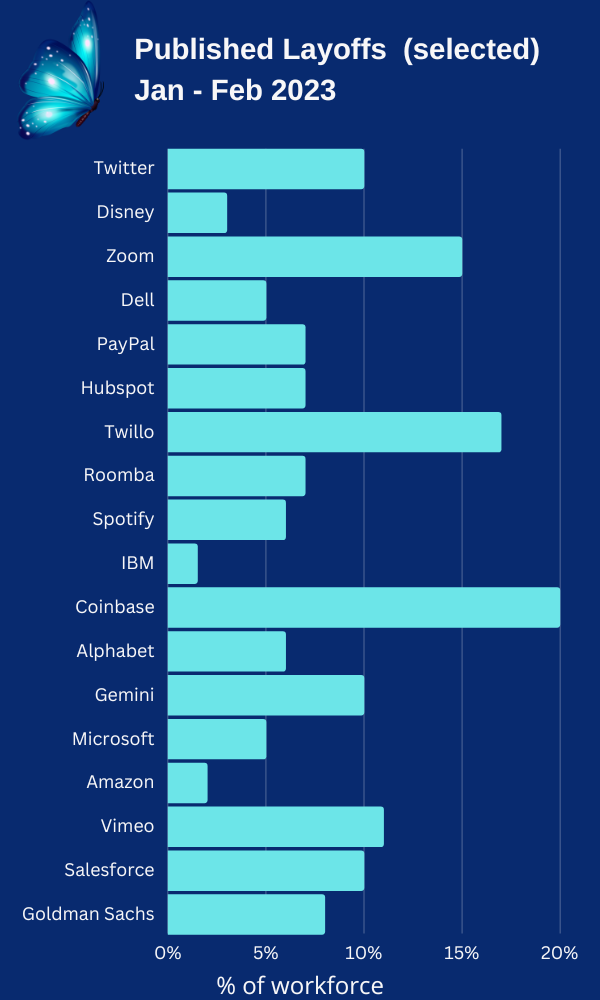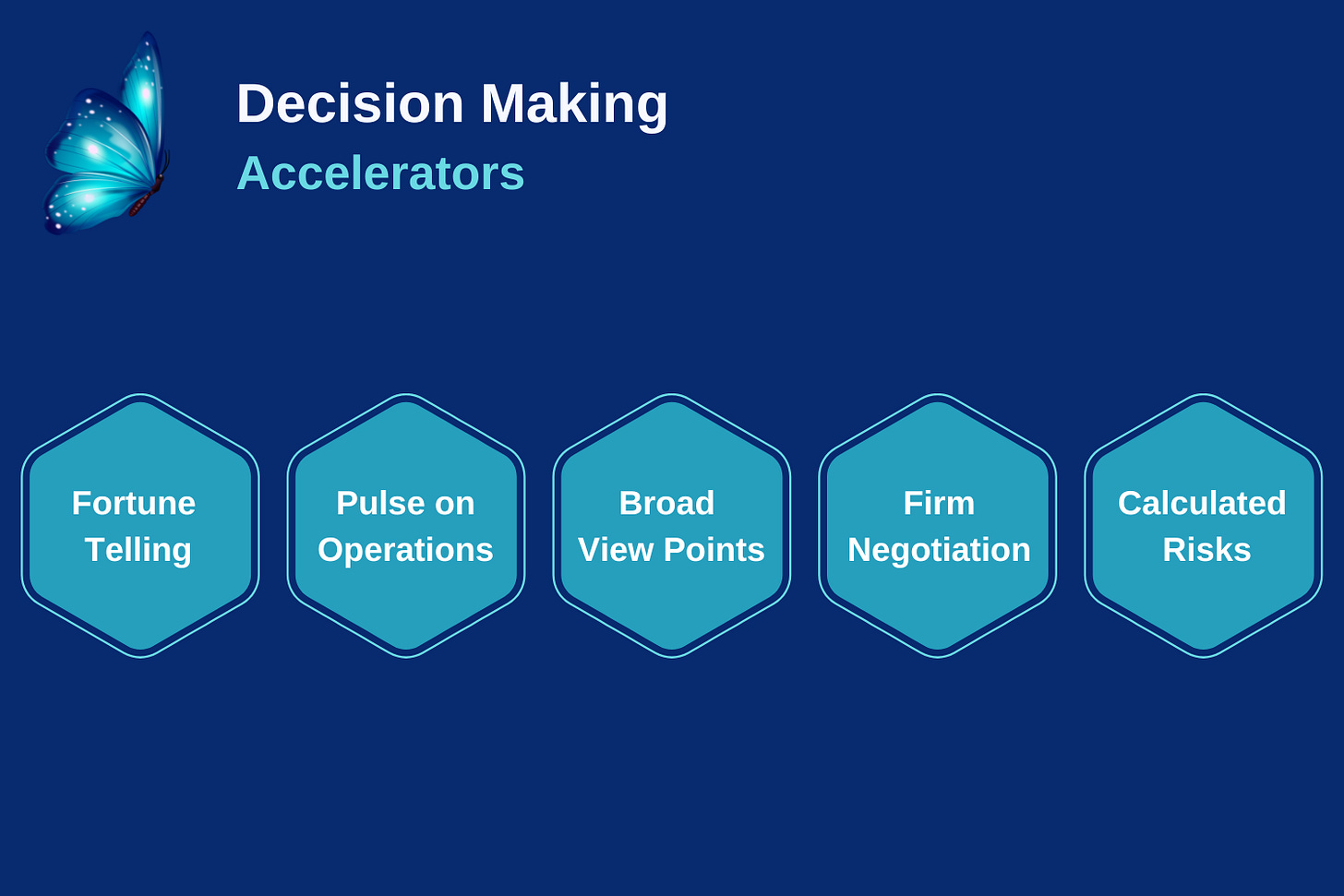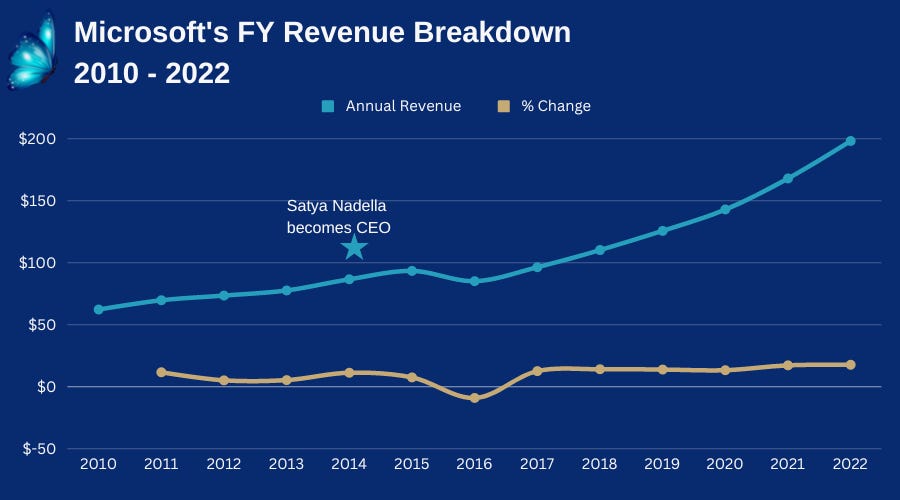Navigating Uncertainty: Strategies for Making Tough Decisions in Business Transformation
(#002)
Before we begin, I'd like to extend a huge thank you to everyone who has subscribed to this publication in the past two weeks.
👋 If you're new here, my name is Giuliano, and I'm dedicated to exploring the strategies, frameworks, and tools that drive business transformation and hyper-growth. By linking strategy with execution excellence, I aim to provide valuable insights to help you succeed.
If this resonates with you, please consider subscribing below for free.
Imagine being at the top of your game, calling the shots and having the power to shape the future of your company. As a high-ranking executive, you have the autonomy to make decisions that can make or break your organization. It's an exhilarating feeling, but it's not without its challenges.
With great power comes great responsibility, and the pressure to make the right decision can be overwhelming. From ensuring you have all the necessary data to separating short-term gains from long-term consequences, there are a million things to consider before making a move.
The higher up you go, the more decision making becomes a key part of your role, and the downstream impacts resulting from your decisions reach far and wide.
Sometimes even the most necessary decisions can be incredibly difficult to make. When faced with failed strategies, macroeconomic conditions, or the need to pivot after investing heavily in resources and plans, leaders must find the courage to take bold action. This was the case for Mark Zuckerberg and his team at Meta. Despite their ambitious vision to transform the company into a metaverse powerhouse, they soon found themselves facing a barrage of challenges that forced them to make tough choices. Now, in 2023, they are grappling with their second round of mass layoffs as they strive to stay ahead in an ever-changing landscape.
Mark’s letter to his staff puts this into painful perspective:
“Here’s the timeline you should expect: over the next couple of months, org leaders will announce restructuring plans focused on flattening our orgs, canceling lower priority projects, and reducing our hiring rates. With less hiring, I’ve made the difficult decision to further reduce the size of our recruiting team. We will let recruiting team members know tomorrow whether they’re impacted. We expect to announce restructurings and layoffs in our tech groups in late April, and then our business groups in late May. In a small number of cases, it may take through the end of the year to complete these changes. Our timelines for international teams will also look different, and local leaders will follow up with more details. Overall, we expect to reduce our team size by around 10,000 people and to close around 5,000 additional open roles that we haven’t yet hired.”
~ Mark Zuckerberg (Update on Meta’s Year of Efficiency)
While Meta's ambitious goals have faced criticism due to their stalled growth, it's important to acknowledge that they're not the only company grappling with complex decisions. As Q1 of 2023 draws to a close, we observe that many of the largest and fastest-growing companies are facing daunting challenges, such as restructuring. The magnitude of these obstacles is staggering.
I know, it’s depressing to kickoff an article with aggregate layoff data but it’s important to size the landscape if growth is your goal.
If you're striving to climb the corporate ladder or scale your business to new heights, get ready to face a barrage of uncomfortable situations. You'll find yourself under immense pressure with everyone looking to you for solutions. Even if you currently do not shoulder a great deal of responsibility and feel that your decisions don’t have much impact, the truth is that the decision-making process remains the same. There's a whole science behind making exceptional decisions, and mastering this skill early on can help you make better choices, even when the stakes are low.
The Transformative Link Between Your Decisions and Success
If you've been in the business world for a while, you know that change is a constant. Sometimes, you can anticipate it and prepare accordingly, but other times it hits you like a ton of bricks. Regardless of how it comes, you're forced to make decisions about how to move forward in a world that's suddenly different from the one you're used to.
It can be overwhelming. You're left wondering what the best direction is to take, and how to make decisions that will bring you closer to your goals. You may not have all the information you need to make the right choices, and the pressure to get it right can feel immense.
But here's the thing: change is here to stay, and those who can navigate it effectively will be the ones who come out on top. That's where transformational leadership comes in. It's about being able to make smart decisions in uncertain times, using the limited information you have to chart a path forward.
It's not easy, but it's necessary. And the first step is to change the way you think about decision-making.
Finding Your Balance
Have you ever wondered as a child why you always picked the green toy instead of the blue one, or why you're more likely to try exotic foods instead of sticking to what you know? It turns out that from a very young age, we start developing our decision-making preferences. These preferences are shaped by our experiences, our environment, and even our innate tendencies.
As we grow and learn, our decision-making preferences become more refined, ultimately leading us down one of two paths: intuition or analysis. Some of us are guided by our gut instincts, relying on our intuition to make decisions quickly and confidently. Others prefer to take a more analytical approach, weighing all the options and carefully considering each potential outcome before making a choice. Which type of decision maker are you? Let's delve deeper into these two distinct categories and find out.
Analytical: Are you someone who takes their time when making important decisions? Do you like to dive deep into the data and explore every angle before arriving at a conclusion? If so, you might be an analytical decision maker - and that's something to be proud of. Unlike some people who rush headlong into a decision without thinking things through, you carefully consider all the options and weigh the pros and cons. You're not satisfied with just scratching the surface - you want to dig deep and unearth every last detail. And when the stakes are high, you kick things into high gear, leaving no stone unturned in your pursuit of the best possible outcome.
Intuitive Decision Making: Have you ever had a gut feeling that turned out to be the right choice? It's a common phenomenon, and the reason behind it might surprise you. Your gut instinct is actually a manifestation of your deep-seated expertise in a particular domain. Think about it - you're constantly experiencing new situations and challenges, and your brain subconsciously processes all of it. Over time, this accumulation of experiences leads to an innate understanding of the subject. So when faced with a decision, your intuition can tap into this knowledge and guide you towards the most effective path. It's like having a secret weapon that's always at your disposal.
By taking the time to categorize your decision-making preferences, you're already ahead of the game. But why stop there? Exceptional decision makers don't settle for "good enough" - they strive for greatness. And that's exactly what we're going to do.
By understanding where you fall on the decision-making spectrum, you'll be able to leverage your strengths and mitigate your weaknesses. It's another secret weapon in your back pocket - one that will help you make better decisions and achieve your goals faster. Of course, it's not always easy to navigate the pitfalls of decision-making. But fear not - I’ll guide you through the process and help you avoid the common traps that can derail even the most skilled decision makers.
For Analytical Decision Makers
Data Overload: Don't get lost in a sea of data! Learn how to sift through the noise and uncover the insights that matter most. Discover the art of data-driven decision making and how to strike the right balance between analysis and action. Avoid the pitfalls of perfectionism and aim for progress, not perfection.
Choice Paralysis: Too many options can be paralyzing. Instead of drowning in a sea of choices, learn how to prioritize and focus on the ones that will have the biggest impact. Master the art of decision triage and say goodbye to decision fatigue.
Stressful Situations: High-stakes decisions can be stressful, but they don't have to be. Learn how to stay calm, cool, and collected under pressure. Discover the power of intuition and how to leverage your experience and expertise to make informed decisions with confidence. Embrace the challenge of difficult decisions and turn stress into success.
Perception Matters: Perception is reality, especially when it comes to leadership. Learn how to balance speed and accuracy and make timely decisions that inspire confidence in your team. Avoid analysis paralysis and show your peers that you have what it takes to lead. Set clear deadlines and hold yourself accountable to achieve your objectives.
For Intuitive Decision Makers
Binary Bias: Don't be fooled by the simplicity of "Yes/No" or "Black/White" decisions. By diving deeper and looking at the bigger picture, you can discover the root cause of the problem or opportunity. Try exercises like the 5 whys to unveil hidden insights and unlock better decisions.
Confirmation Bias: Even the best of us fall victim to our own biases. Don't let your personal preferences cloud your judgment. Challenge your own thinking by creating an objective framework or scoreboard, and seek out alternative perspectives through group think to uncover new insights.
Overconfidence: Expertise in your domain is important, but don't let it blind you to new possibilities. Be your own biggest critic and use metrics and feedback from others to refine your ideas. Don't be afraid to seek out new perspectives and challenge your assumptions.
Easily Persuaded: While it's important to be open to new ideas, don't let others sway you too easily. Hold your ground and validate the decisions of others as rigorously as you would your own. By staying true to your principles, you can make more confident and informed decisions.
Now that you have a good understanding of your decision-making preferences and how to effectively incorporate both styles, it's time to move on to the next step. Let's explore what sets apart good decision makers from the truly great ones and discover the powerful techniques that can help you reach new heights of excellence.
Decision Making Accelerators
Making decisions is a critical component of achieving success in the dynamic world of business transformation. When embarking on a new initiative or planning for future changes, your ability to make sound decisions will be tested time and again.
Fortunately, there are a series of accelerators that can help you improve your decision-making skills and take your business to the next level. These accelerators are a collection of powerful tools and techniques that have been honed by some of the brightest minds in business.
Fortune Telling : Great decision makers possess an uncanny ability to see the future before anyone else does. They can spot trends as they are just beginning to take shape and formulate an idea of what's to come. This provides a massive advantage to transformation leaders who may be less aware.
One of my favorite examples of such a leader is Microsoft CEO, Satya Nadella, who has managed to pivot the company for the better not just once, but twice, with a third pivot on the horizon. It's truly incredible what he has accomplished. As a result, the market has rewarded Microsoft as one of the most valuable companies in the world.
The first example happened way back in 2014. Upon taking the top seat, Satya came right out of the gate explaining his vision of having the Microsoft ecosystem revolve around the cloud and mobile. If you think about it, that was such a massive pivot for a company that was mostly focused on its core windows product.
To showcase the team's full commitment to the plan, Julia White, who was Microsoft's General Manager at the time, took the stage:
“Now, to start this I’m going to go to my iPad. Now, Microsoft is absolutely committed to creating great mobile applications, and you see on my iPad we already have a number of apps, right? I have my Yammer app, Lync, Dynamics, Bing, Skype, OneNote, and one my favorites, OneDrive.
So let me go ahead and open that OneDrive app. And thanks to cloud storage with OneDrive, I have access to all my content on all my devices, including of course my iPad. And I can get access to it right away.”
~ Julia White, General Manager, Microsoft
Did you catch that? Just picture this: as the new CEO, you make the bold decision to kick off your tenure by showcasing your apps on the device of your long-time rival, Apple. It's a daring move that demonstrates Microsoft's unwavering commitment to its transformation goals.
This leads me to his second big transformational decision. Satya decided to be a “partner-friendly” company. Embracing the fact consumers have the choice to use whatever device they like. And whatever they choose, there will be a perfectly capable Microsoft product waiting for them.
Lastly, what’s coming might be the most exciting. Microsoft is leading the charge on a future with artificial intelligence with the rollout of ChatGPT along with OpenAI. This is starting to translate into a leading position of incorporating AI in all tools in their ecosystem, including search. Should Google be worried?
Predicting the future is a challenging task that requires a combination of intuition and expertise, and even then, there's always the possibility of being wrong. However, by mastering the other four accelerators of decision-making, you can equip yourself with the tools necessary to make informed and accurate decisions that have a far-reaching impact.
Pulse on Operations: As an executor, it's crucial to grasp the inner workings of your business. You need to scrutinize every aspect of the customer journey and internal operations to spot areas of improvement while recognizing the company's strengths. With a deep understanding of your business's nuts and bolts, you can make swift and informed decisions.
This knowledge will help you pinpoint the critical projects that will make the most significant strides towards your business goals. Just as important, it enables you to execute projects more efficiently by promptly identifying their scope and assembling the right stakeholders.
Broad Viewpoints: Have you ever found yourself in the unexpected role of a project manager? It can be a daunting task, especially when you realize how vast the scope of work can be. Making decisions and getting things done can feel overwhelming, and it's tempting to stick with what you know and operate within your comfort zone.
But here's the thing: settling for what you already know can be the biggest mistake you make. Imagine instead, the benefits of surrounding yourself with subject matter experts in every area that's crucial for your transformation initiative. Picture being able to tap into their expertise, knowledge, and perspectives to make smarter decisions and achieve better outcomes.
But why stop there? How about going above and beyond and gaining above-average knowledge in areas outside of your own? Imagine the competitive edge this would give you as a decision maker. The more you learn and expand your knowledge base, the more effective you'll be at leading and managing successful projects.
Here are some ways to make this happen.
Expand your network and tap into new ideas by regularly connecting with leaders from other departments. By learning how their teams operate, you can discover fresh approaches and gain a new perspective on your own work.
Elevate your expertise by attending conferences and seminars that complement your area of responsibility. You'll stay on top of industry trends, build valuable connections, and return to your role with fresh ideas.
Broaden your intellectual horizons by exploring a variety of books and podcasts. Diversifying your sources of information can help you think more creatively and make connections you might not have otherwise.
Take a bold step towards mastery by immersing yourself in a new area of the business through a lateral move. This transformative experience offers a chance to broaden your skills, deepen your understanding of the company, and gain valuable cross-functional expertise.
Firm Negotiation: Do you ever find yourself feeling so passionate and certain about a decision that you just want to dive right in? But sometimes, the power to make that decision isn't entirely in your hands. In these situations, it's crucial to state your case convincingly to the real decision maker in order to drive change.
The mark of a truly great decision maker isn't necessarily having all the authority, but rather covering all their bases to ensure the success of their proposed plan. When the potential benefits of taking action outweigh the risks of a failed strategy, it's up to you to paint that compelling vision.
To win over decision makers, it's essential to create win-win situations and collaborate with others to generate innovative ideas. One useful technique is to lead exercises like pre-mortems, which can help you anticipate potential obstacles and address them proactively. By using these tactics to gain acceptance for your decision, you can pave the way for a brighter future.
Calculated Risks: As a leader, you know that transformation can bring incredible rewards. But it's also a fact that every transformation comes with a degree of risk. This is where your mindset becomes pivotal. By recognizing the risks and taking the time to evaluate them, you position yourself for success.
In my own career in the project world, I've learned to constantly assess and manage risks. I see risks as uncertain events that can have either positive or negative outcomes, and I've honed my ability to quickly determine whether a mitigation plan is needed based on factors like likelihood and impact.
This skill is essential because it enables me to make informed decisions and seize opportunities with confidence. As a leader, you must be able to assess the information available and decide whether the potential benefits outweigh the risks. By embracing this mindset and cultivating your ability to evaluate risks, you position yourself to achieve remarkable things.
Exercise
Are you ready to elevate your decision-making skills and take them to new heights? Let's dive into the world of decision-making and start making real progress.
Get your pen and paper or electronic notepad ready, and let's begin by reflecting on the last major decision you made. It doesn't matter what "major" means to you; what's important is to evaluate the outcome and how you went about making the decision. This exercise will help you understand your decision-making process and learn from it.
Now, let's imagine making the ultimate decision that aligns perfectly with your criteria. What would it take for you to make that decision? Would it be having all the data at your fingertips, or having deep domain expertise on the subject? Take some time to identify your perfect set of criteria.
To take your decision-making abilities to new heights, let's assess where you currently stand in regards to the 5 decision-making accelerators. Then, challenge yourself to push beyond your limits and improve in each of these areas. Don't sell yourself short; I really want to see you challenge yourself here.
Now that you have all the necessary tools at your disposal, the next major decision is yours to make. Embrace the challenge of uncovering what type of decision maker you are, taking into account your blind spots, and incorporating decision-making accelerators. This is your chance to rise to the occasion and truly excel in making impactful decisions.






